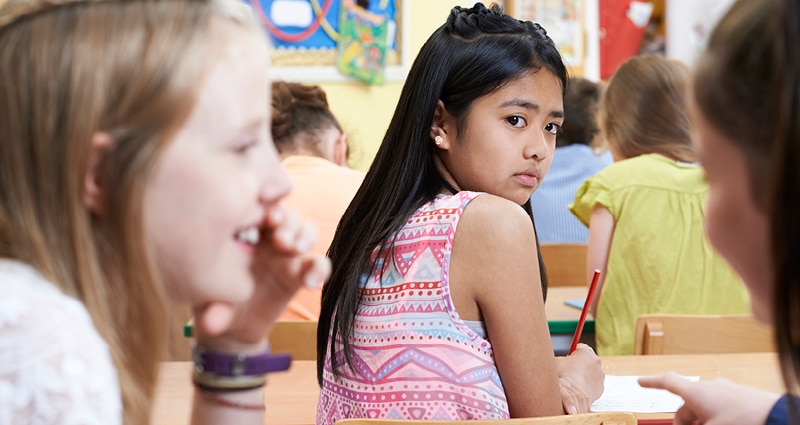Learning how to be a good friend is a life skill all kids can develop.
Bullying is never OK. We’ve gathered some tips to help parents support their kids to hopefully avoid bullying and minimize any impact it may have.
Why Do Kids Bully?
Bullying is being mean to others over and over and often includes teasing, talking about hurting someone, spreading rumors, leaving others out on purpose, and hitting or yelling at others.
Some of the reasons kids bully others include trying to fit in, copying friends who bully, and trying to make themselves feel or seem better than the kids being bullied.
Bullying Isn’t Always in Person
Typically, we think of bullying as something that happens at school or on the bus, but cyberbullying is a type of bullying that happens online through text messages, email or social media.
Check out our guide to social media safety for more tips to navigate online spaces.
No Bully Zone
Schools may have policies or even clubs to prevent bullying, saving children from the mental, physical and emotional damage that bullying can cause.
Some have developed a “sit with me” or “need a friend” bench in which a child who feels left out can sit and other children know that means that friend could use some support and attention.
Suggesting a similar bench or official no bully zone at your child’s school could be a way to help many students cope and develop their empathy skills. Even without such a visual cue, children can be on the lookout to support others, being a friend for those who need it and accepting friendship from others as well.
Stand Up for Others
Part of learning to be inclusive and being the change to maintain a no bully zone includes noticing when others are being bullied and speaking up to stop it.
The best thing for kids and teens to do is get an adult to help—a teacher or other adult who can stop the bullying on the spot and address any underlying tensions.
Tips for Parents
Maintain no tolerance for bullying. Clearly set rules and stick to them. Use natural consequences such as loss of use of technology in response to rudeness or bullying behavior online.
Encourage good behavior with positive reinforcement. When your child handles something well, be sure to praise them.
Teach and model treating others with respect and kindness. This can help instill empathy for those who are different.
Learn about your child’s social life – what’s influencing their behavior? Who are their friends? What videos, shows and movies are they watching? How do they interact with others on social media, and how does it make them feel? Maintain open lines of communication as much as possible.
Other Resources
Check out our ParentingU podcast episode: More Than Being Mean – Bullying. Pediatrician Gregory Gelpi, MD, provides practical tips and strategies to deal with this issue.
The U.S. Department of Health and Human Services maintains StopBullying.gov, a site with resources for parents, teachers and other adults to help prevent, identify and stand up to bullying behavior.
When to Get Additional Help
Bad behavior won’t stop on its own, but early intervention for bullying behavior can reverse it, protecting children and their potential victims.
A history of arguing, defiance or trouble controlling anger may be a sign your child would benefit from an evaluation with a behavioral health professional. Your pediatrician can help connect you and provide additional support when you need it.




